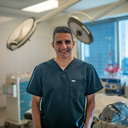Stopping Lovenox injections what is the protocol so I don't get another DVT after my lipo touch up.
I developed a large DVT within 2 weeks after my lipo touch up. My Dr. put me on Lovenox injections for 20 days. Is this sufficient amount of time? What do I do after the injections? What is a safe protocol to make sure I don't get another DVT. What are the risks stopping the injections.







